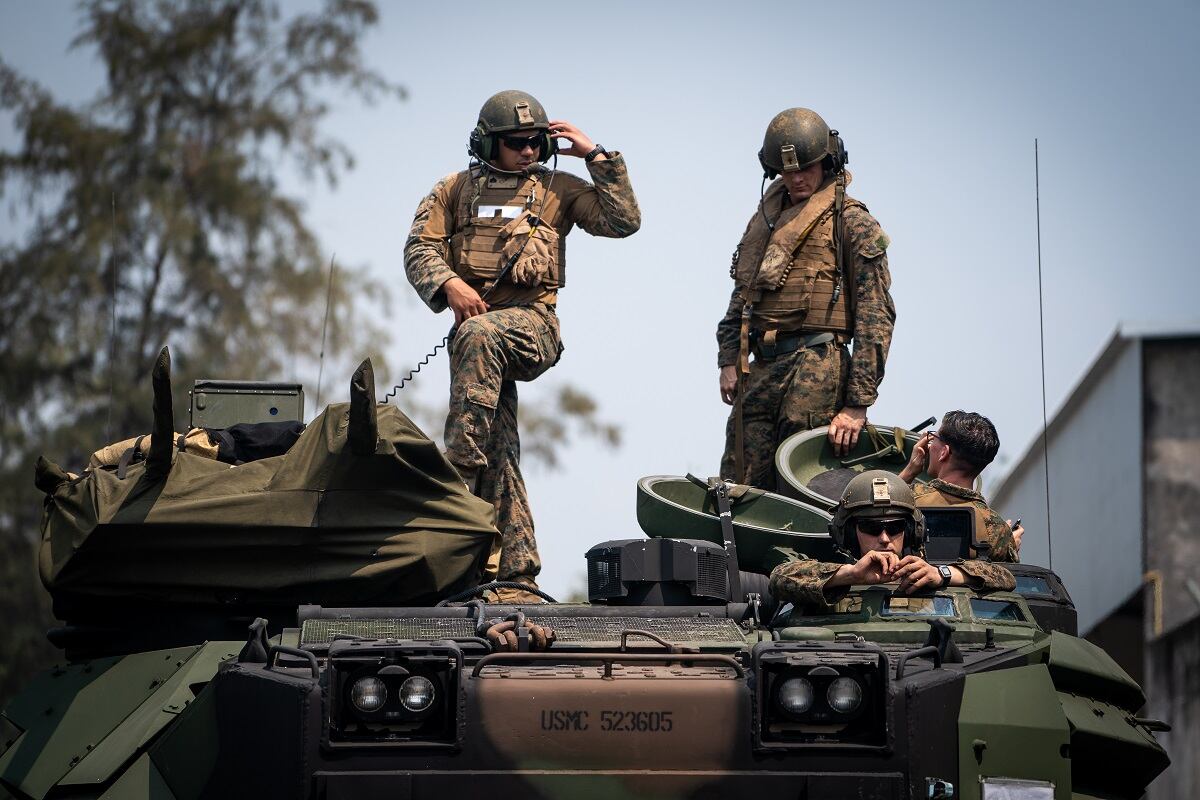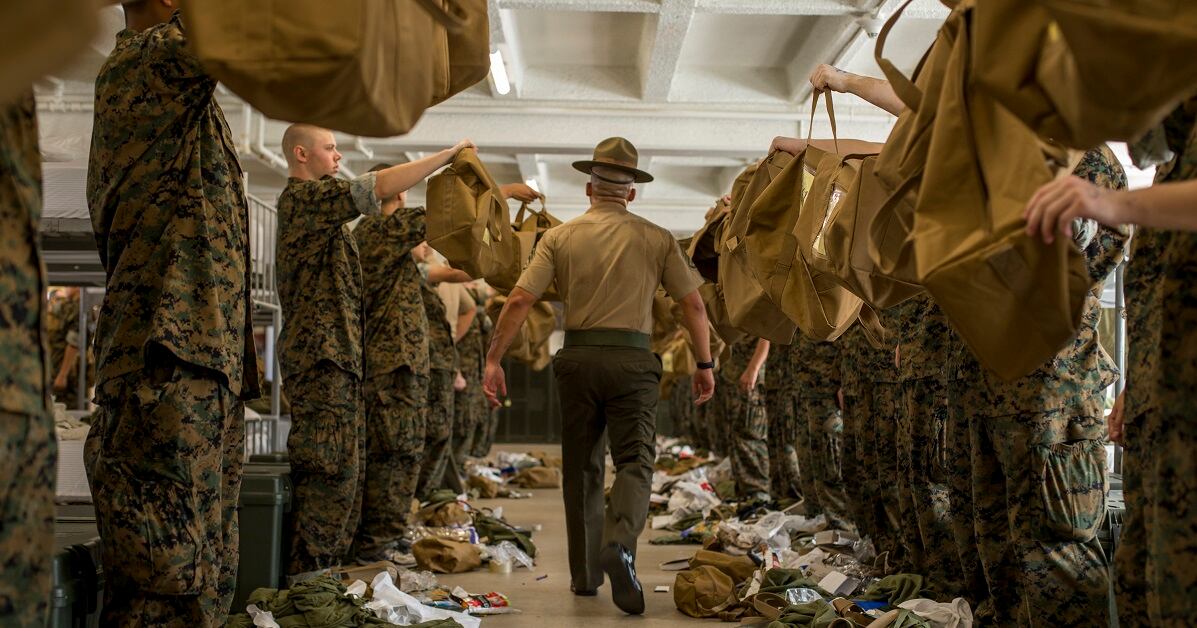There’s a new sergeant major of the Marine Corps in town as of Friday, but don’t expect a whirlwind of changes anytime soon.
If the mantra of Sgt. Maj. Troy Black, the 19th sergeant major of the Marine Corps, could be summed up, it’s in the popular 1970s Marine Corps recruiting ad: “We don’t promise you a rose garden."
Black told Marine Corps Times in an exclusive interview that Marines shouldn’t expect significant changes to tattoo policies, grooming standards, uniform regulations or re-enlistment incentives: What he’s focused on is the foundation of the Corps and its Marines.
The Corps exists for “a singular purpose” Black said. “The round hitting the target. The Corps is about warfighting.”
And there are certain non-negotiables that make up the identity of the Corps. He said he’s focused on reinforcing those.

“Hands in your pockets,” and other Marine regulations are, “all important stuff, all contribute to warfighting in some way shape or form," Black said.
“Everybody tries to be like the door-kicker," he said. But, “people who end up working in that community find out everyone is not a door-kicker.”
An infantryman and former drill instructor, Black, during his 30 plus years in the Corps, has deployed all over the globe, from Desert Storm to Iraq and Afghanistan to even recent operations against ISIS in support of Operation Inherent Resolve in 2014.
That experience has shaped Black’s view of the Marine Corps, where after 18 years of being embroiled in counterinsurgency operations, it has lost its focus on its sea and maritime roots.
The new Commandant of the Marine Corps Gen. David Berger’s recent planning guidance, which outlines a slew of new policies to reintegrate the Corps with its seafaring roots, isn’t new to Black ― that was simply how the Corps operated before the war on terror.
RELATED

From about 2005 and on, the Corps “really started getting invested in PTP [pre-deployment training], everybody is wearing desert cammies 24-hours a day, there’s one place we are going to go. If you’re on a MEU [Marine Expeditionary Unit], good luck to you. You’re going to get some.”
That has been the Corps’ routine for almost twenty years as Marines have either flown or been bumped with a Marine Expeditionary Unit into the Middle East, cycle after cycle.
The top Marine’s new guidance is focused on the Corps “re-establishing ourselves as a naval expeditionary force,” which Black told Marine Corps Times is foundational to the Corps and how it operates.
But there are challenges for the Corps ahead as the force gets back to integrating with the Navy and contending with rising peer adversaries across the globe.
The Corps is evolving to address those challenges and to recruit high demand talent in vital fields like cyber, intelligence and long range fires, while striving to retain experienced infantry leaders.
RELATED

Often “not enough credit” is given to the citizens who join the services with advanced skills on-hand, and we should “give appreciation” to whom we are enlisting, Black explained.
“We think we have to teach everything from ground zero ― we don’t,” Black said. “My 11-year-old son is more cyber aware than I will ever be.”
And the Corps, Black explained, doesn’t need to throw out its foundation to entice high talented individuals to join in the Corps.
Incentives are important, and the Corps should look at which incentives work, Black said. But, according to Black, exit surveys of departing Marines say it’s not about money.
“Why do people want to join the Marine Corps?" Black asked. “It’s to be a Marine.”
There’s a misconception that talented people suddenly have options they didn’t have before, Black said. He also cautioned the presumption that the Corps loses “all talent because we don’t have some kind of incentive to keep it.”
At the end of the day, the Corps has particular foundations and there’s a set way the Corps does business, Black explained. Even top tier championship winning sports teams will cut star athletes if they don’t conform to the team’s philosophy or routine, Black said.
The Corps wants to keep those Marines who understand and work within the Corps’ way of doing things, Black said.
While Black said his tenure as the sergeant major of the Marine Corps will not focus on new uniform regulations, the Corps is still considering a decision to allow male Marines use of a black umbrella in uniform, according to Marine officials.
Disclosure: Marine Corps Times reporter Shawn Snow served with Sgt. Maj. Troy Black on the 13th Marine Expeditionary Unit in 2005, but both served under separate chains of command.
Shawn Snow is the senior reporter for Marine Corps Times and a Marine Corps veteran.





